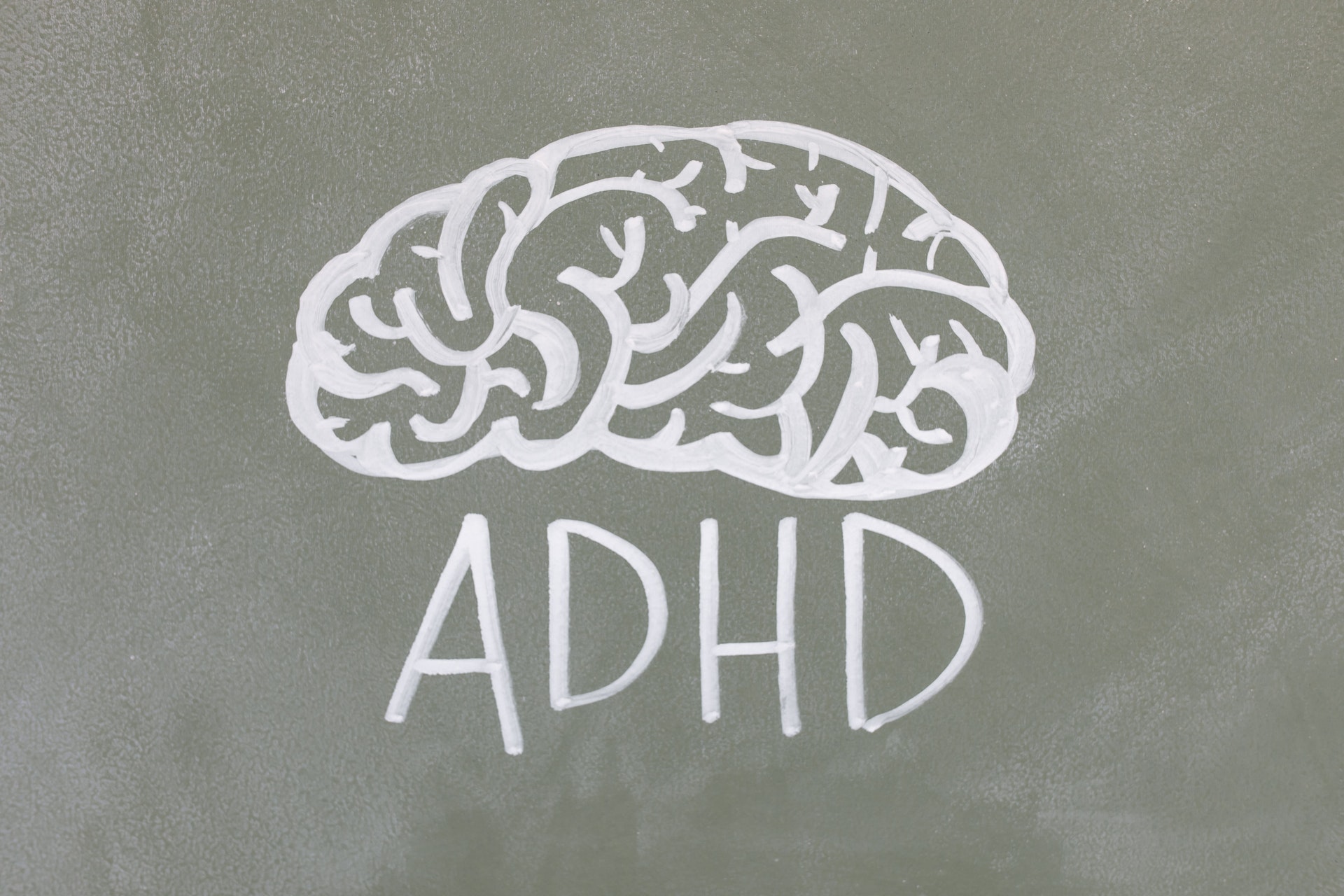There is nothing that worries a parent like wondering whether or not your child is okay or getting the support he or she needs. When a child’s behavior seems different than other children their same age, it can be painstaking for parents as they try to figure out whether or not their child has signs of ADHD or another behavioral problem.
 Your child might have trouble sitting still, frequently loses items, blurts out statements or questions at inappropriate times, or struggles to focus for a sustained period of time, which leads you to wonder if he or she may have ADHD.
Your child might have trouble sitting still, frequently loses items, blurts out statements or questions at inappropriate times, or struggles to focus for a sustained period of time, which leads you to wonder if he or she may have ADHD.
Before we address the evaluation and treatment of ADHD from a Christian perspective, let’s first take a look at some symptoms of ADHD in children and some possible alternative causes of ADHD-like behavior.
Signs of ADHD in Children
According to Data and Statistics about ADHD from the Centers for Disease Control and Prevention, in 2016 approximately 6.1 million or 9.4% of children between the ages of 2-17 had been diagnosed with ADHD. That breaks down to approximately:
- 388,000 children between the ages of 2-5
- 4 million children between the ages of 6-11
- 3 million children between the ages of 12-17
ADHD is a neurobehavioral disorder that is best characterized by inattentiveness, distractibility, hyperactivity, and impulsivity.
According to the Diagnostic and Statistical Manual of Mental Disorders, 5th Edition (DSM-5), ADHD is a “persistent pattern of inattention and/or hyperactivity-impulsivity that interferes with functioning or development. Symptoms can fall into three categories: inattention, hyperactivity, and impulsivity. Let’s take a look at them separately.
Symptoms of Inattention:
- Failure to pay attention to details or making careless mistakes in schoolwork or activities
- Difficulty paying attention and staying focused during lectures, reading, or conversations
- Seeming not to listen when spoken to directly and appearing to have a mind that is elsewhere even when distractions are not present
- Failure to follow instructions or finish schoolwork, instructions, or chores
- Dislike of tasks that require sustained mental focus and attention
- Difficulty organizing tasks, activities, or items; poor time management; failure to meet deadlines; trouble keeping belongings in order.
- Often losing or misplacing things like pencils, schoolwork, shoes, and other items
- Easily distracted by external stimuli
- Forgetfulness of daily activities, such as chores, running errands, appointments, etc.
Symptoms of Hyperactivity-Impulsivity:
- Frequent fidgeting, squirming, or tapping feet or hands
- Frequent getting out of one’s seat when sitting is expected
- Frequent climbing, running, or jumping around in situations where it is inappropriate
- Struggles engaging in or enjoying less active activities quietly
- Excessive talking or blurting out answers before a sentence or question has been completed
- Difficulty waiting in line or waiting their turn
- Frequent interrupting or intruding (i.e. – butting into conversations or activities or grabbing others’ items without permission)

It’s important to note that children may experience mild, moderate, or severe symptoms and that we’re looking to see the factors and/or combined factors that have persisted for a sustained period of time over the last 6 months.
If indeed your child has been professionally diagnosed with ADHD by a mental health provider or psychologist, it is important as a parent to contact a counselor to learn more on this condition, understand how it develops and how to best support it, and obtain adequate services and resources. Many children diagnosed with ADHD have a high level of intelligence and look forward to understanding more about what ADHD is, how to age-appropriately interact with other children, increase their self-esteem, and practice self-regulated strategies.
Gender Difference in Behavior and ADHD Diagnosis
ADHD diagnosis does have a higher prevalence among boys than girls in childhood whereas the prevalence of ADHD diagnosis in adulthood is more comparable among the genders. According to a 2014 review of ADHD in women and girls by Quinn and Madhoo the prevalence of ADHD is 2-to-9-fold higher in boys than girls.
This may be due to the fact that boys tend to have a higher prevalence of hyperactivity whereas symptoms among girls often display themselves as inattentiveness. For example, a boy that is fidgeting or in-and-out of his seat is more apparent than a girl who isn’t focusing or paying attention. This results in girls often being misdiagnosed or not referred for an evaluation.
The review also suggests that girls may also develop better-coping strategies to mask the impact of their more internalized ADHD symptoms.
Other Causes of ADHD-like Symptoms in Children
You might be reading this list of symptoms and think to yourself: gosh, I experience some or all of those symptoms. Does that mean I have ADHD, too? It’s important to note that all individuals experience some form of impulsivity and inattention from time to time. These symptoms need to be persistent and prolonged, which is why it’s so important to get an evaluation by a clinician and also look into some potential alternate causes of ADHD symptoms.
Other Causes Of ADHD-like Symptoms:
- Stress or a sudden life changes, such as a move, new baby, divorce, neglectful environment, inconsistent discipline, bullying, or abuse
- Lack of sleep due to an inconsistent bedtime, environmental or chemical stimulants (sugar, caffeine, screen time, or bright lights), mouth breathing or sleep apnea (sleep disturbances have a very profound effect on a child’s ability to focus and behave rationally)
- Academic giftedness that is not being cultivated or challenged within a classroom or home environment

It’s true that ADHD symptoms in children can also be a normal expression of your child’s own temperament and personality. Thus, it might just be that you have a hyperactive child on your hands or a child who lacks some basic social and behavior skills training, in which case, this is also something Christian counseling can help with.
With this in mind, an important question that many parents and professionals now have is: Are children being overdiagnosed with ADHD and overmedicated?
IS ADHD Overdiagnosed and Overmedicated?
In a January 2017 study titled Overdiagnosis Of Mental Disorders In Children And Adolescents (In Developed Countries) published in the Journal of Child and Adolescent Mental Health, “During the past 50 years, a worldwide increase in prevalence rates of mental disorders in children and adolescents was found in studies using data from health insurance providers, national registers of health services, and special education programs.
The conclusion of the study:
“While there is little research concerning overdiagnosis of child and adolescent mental disorders, first studies point to misdiagnosis of several mental disorders. Unintended overdiagnosis can occur due to the use of heuristics, disregarding differential causes of observed behavior, misleading endorsement of symptoms by caregivers, or differential interpretation of diagnostic criteria by examiners.
To resolve this problem and to ascertain that children and adolescents are not harm by unnecessary (medication-) treatment, clinicians diagnosing mental disorders are encouraged to use semi-structured clinical interviews and should actively participate in continuous education regarding latest findings in research, while diagnostic criteria must undergo constant evaluation in order to meet the latest state of scientific knowledge.”

It is true that ADHD diagnosis is on the rise and there are likely a number of factors for that, including heightened awareness and understanding of the disorder. Many argue that ADHD is overdiagnosed, some argue that it is underdiagnosed, while most agree that it is often misdiagnosed due to a number of clinicians not rigorously following the diagnostic guidelines for ADHD.
It’s very important to have sufficient supervision and support when it comes to ADHD evaluation and treatment.
Evaluation of Signs of ADHD and ADHD Treatment
An ADHD evaluation by a counselor or psychologist may include:
- Behavioral checklists completed by parents, teachers, or the child (if the child is old enough)
- A computerized test that measures ADHD symptoms
- An assessment by the clinician for other disorders such as anxiety, depression, processing disorders, or learning difficulties
- A recommendation for a hearing or vision test to rule out other contributing medical factors
Treatment for ADHD can look different for each child, but most experts agree that if medication is required, medication alone is not enough and more success if found with a combination of drug and behavioral therapy.
Social skills training, behavioral interventions, or cognitive behavior therapy can help improve academic performance, increase self-esteem, provide coping strategies for emotional difficulties, and help a child better function at school and home.
A Christian Counselor can help you assess ADHD symptoms in your child and provide cognitive-behavioral therapy and coping strategies, along with spiritual encouragement. To learn more about Christian counseling for children needing to be assessed or treated for ADHD, please contact me or one of the other counselors in the counselor directory to schedule a risk-free appointment.
Photos:
“ADHD”, Courtesy of Tara Winstead, Pexels.com, CC0 License; “The Young Detective”, Courtesy of Monstera, Pexels.com, CC0 License; “Online Classroom”, Courtesy of Julia M Cameron,, Pexels.com, CC0 License; “Tutoring”, Courtesy of Katerina Holmes, Pexels.com, CC0 License
-
Kate Motaung: Curator
Kate Motaung is the Senior Writer, Editor, and Content Manager for a multi-state company. She is the author of several books including Letters to Grief, 101 Prayers for Comfort in Difficult Times, and A Place to Land: A Story of Longing and Belonging...





